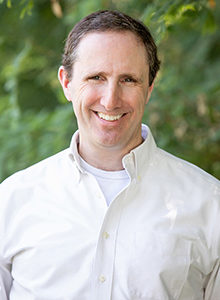If the world were a rightly ordered place, then this story takes a very different turn than it did. Looking back on how it unfolded, the wrong that was committed against me, as hurtful as it was, is not surprising, considering all I have learned since then about the prevailing narrative around autism. Without this knowledge, I was rendered a sitting duck without an adequate means of fighting back.

Where there is vulnerability, there is a greater possibility of injustice and emotional distress. This is a recurring theme among those of us who are neurodivergent, largely because of our differences. In my view, ableism, more than anything else, lies at the heart of the injustices that are leveled upon us. The story told here is a case in point.
For quite some time, my wife wondered if my learning disability was the only significant challenge I was up against. In 2009, upon turning 40, I was finally ready to listen to her and move past all the years of not wanting to find out if there were additional challenges not yet known to me, feeling as though the learning disability was more than enough baggage with which to contend. We would soon learn that a neuropsychological evaluation was the logical step to take if there was, in fact, more to uncover.
The neuropsychologist who agreed to evaluate me is the clinician at the center of the story. At first, she treated me with decency and respect. I expected no less of her, granted the financial investment I made in order to work with her and my assumption that she understood that I was in a vulnerable place emotionally, what with the anxiety of not knowing what would come of the evaluation. The initial appointment, the evaluation, and the subsequent session during which she revealed the Asperger’s diagnosis all proceeded with her acting as I had hoped she would toward me.
I’m sure that she could see that I did not respond well to the life-altering news. My body language and my facial expressions, in particular, made that apparent. It was difficult trying to reconcile what I knew about autism and Asperger’s with what I had just learned about myself, though it helped that she showed understanding and professionalism in that moment. It wasn’t until our final session, during which she discussed the next steps with my wife and me, that the unexpected occurred, and I was simply not prepared.
I could not see it coming, considering how positive I felt about our work together up to that point. Her very first words that day were directed at my wife: “So, you chose to marry him,” with an emphasis on “you” and spoken in a particularly callous tone. It was as if she was telling my wife, “You’re stuck,” while simultaneously telling me, “She’s stuck, and that’s because of you.”
A part of me wanted to respond on behalf of my wife by saying something along the lines of “Yes, she did choose to marry me, just as I chose to marry her. Is there a problem with that?” But it was not to be. I was too shocked to open my mouth. Too compromised to stand up for myself. Too absorbed in disbelief to do much of anything except sit still and try to process what had just taken place.
To be minimized in this fashion by somebody charged with the responsibility of guiding and helping others is morally reprehensible, in my view. I cannot think of another time in my life when I felt more humiliated. I will never know what she was hoping to accomplish by going after both of us in the way she did, nor would I want to know. It did not dawn on me to report her because I was contending with compromised self-esteem at the time. Consequently, my capacity for self-advocacy was limited at best.
The only explanation I can come up with for this neuropsychologist’s conduct is her evident belief in the medical model of autism and disability. If a clinician views their autistic client as diseased or disordered, it regrettably becomes more likely that the former will treat the latter as if they are broken and in need of repair or as being “less than.” Somehow, it becomes permissible to resort to condescension, not merely toward the client but toward his spouse as well. What nerve! Ableism at its worst.
As if I hadn’t already been through enough, having not taken well to the Asperger’s revelation that came out of nowhere, unbeknownst to me for the first 40 years of my life. As if I hadn’t already sacrificed enough, what with the $3,000 out-of-pocket expense I incurred for a service my insurance policy refused to cover.
Thankfully, time has the ability to heal wounds, and I remain most grateful that it did in this case. Before long, I would eventually come to accept, and ultimately embrace, my autistic identity. Greater knowledge of autism and the neurodiversity paradigm helped get me there.
As for the neuropsychologist, a few years prior to this writing, an individual who told me he wanted a neuropsychological evaluation asked me if I knew of somebody he could see for this purpose. I found myself recommending her in spite of what she put me through, wondering after the fact what possessed me to do such a thing. I ultimately reached the conclusion that it was because I have always tried to see the best in people, even after facing the consequences of their character flaws. I had to believe that she didn’t treat all of her clients the way she treated me that day back in 2009. Time heals wounds, and I wanted to give her the benefit of the doubt.
After all, she did correctly identify me as autistic and referred me to a clinician who proved to be adept at helping me figure out my newfound identity. And for these, I will always be grateful.
Sam Farmer is an information technology consultant, neurodiversity advocate, writer, author and public speaker. Identified later in life as autistic, he writes articles, records podcasts and presents at libraries, conferences and for corporations and autism community organizations, sharing stories of lived experiences and his opinions on a variety of topics of relevance to the neurodiversity and disability communities. “A Long Walk Down a Winding Road – Small Steps, Challenges, & Triumphs Through an Autistic Lens” is his first book. To learn more, visit www.samfarmerauthor.com.




